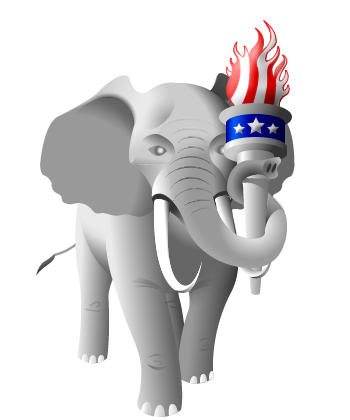Amity Shlaes, senior fellow in economic history at the Council on Foreign Relations, is a Bloomberg News columnist.
Her e- mail address is amityshlaes@ hotmail. com.
Every economist has his day.
World War II was the era of John Maynard Keynes, who taught that a few great minds can improve an economy. The 1990s were the era of Milton Friedman, when markets proved they had the capacity to slip past government and regulatory obstacles.
The next few years? They belong to Hayek, and for that we can thank the effort to pass the health-care bill.
Friedrich von Hayek literally was an Austrian, born in Vienna in 1899. But Hayek also was a member of the Austrian school of economics, that group of scholars who built models that tried to explain the business cycle.
Having served as an artillery officer during World War I, Hayek learned that when the worst could happen, it often did. In the early 1930s he decamped to the U.K., where he taught at the London School of Economics. During the blitz, Hayek was an air warden and walked the rooftops with Keynes, the man who would become his great opponent.
As the war came to end, Hayek penned an apocalyptic tract, “The Road to Serfdom.” His thesis was that war gets people used to national planning. So the planners continue to plan, even in peacetime. These incremental expansions of the social- welfare state aren’t benign. They foster the creation of ever- more-powerful interest groups. The economy becomes less productive. Political corruption in turn gives rise to dictators. Foreign-policy tension or economic crisis accelerates the trend.
“‘Emergencies,’” Hayek wrote, “have always been the pretext on which the safeguards of individual liberty have eroded.”
When Hayek started to make such warnings, he was focusing on Britain, where the Labor Party was pulling the country to the left even as World War II was being won.
For a number of decades the main thing about Hayek seemed to be that he was wrong. Britain did head to the left, far to the left. After the war, the U.S. also institutionalized government planning in new areas. Yet neither Britain nor the U.S. went socialist or trampled personal freedoms. On the contrary, they eventually turned toward Margaret Thatcher and Ronald Reagan.
Those expansions of government that had taken place — the introduction of Medicare and Medicaid — didn’t seem to be getting in the way of democracy or markets.
Hayek fell out of favor. Though he won a Nobel Prize, he had to endure the humiliation of sharing it with the socialist Gunnar Myrdal. Even conservatives preferred Friedman to
Hayek.
But this low estimation of Hayek fails to appreciate his central thought: the economic damage is subtle and is evident only over time.
Expanded health care, which the Democratic-controlled Congress is attempting to adopt, provides the best example. In 1964 the Democratic Party platform document contained a passage on health care. “We will continue to fight until we have succeeded in including hospital care for older Americans in the Social Security Program and have insured adequate assistance to those elderly people suffering from mental illness,” the platform said.
At the time, the idea seemed radical. Something beyond Social Security for seniors? This was the new, final benefit. But once a hospital-care program was in place lawmakers decided that wasn’t enough, and added doctor visits to the list. In later years they expanded yet more, including, under President George W. Bush, the inclusion of Medicare Part D and prescription drugs in the offering.
Even that didn’t suffice, which is why House Speaker Nancy Pelosi and Senate leaders are trying to ram through a vastly expanded public health program this month. The various health- care bills, with their proposed mandates on individuals and their new taxes on wealthy earners or on gilded health-insurance policies, are probably something Lyndon Johnson himself never envisioned.
But Hayek did. Hayek understood that a good decade where government expansion seems to stall — the 1990s — doesn’t mean government won’t expand when the next crisis comes.
The recent pattern of following a war and a financial collapse with the creation of a new entitlement is a perfect example of the Hayekian dynamic in action. No doubt, a new healthcare program would be only the first in a number of government incursions, no matter how Republicans do in the midterms.
The U.S. is on the road if not to serfdom then to less growth, less innovation, more rationing and more political corruption. Recognition of this has shown up in the spate of Hayek blogs and discussions; one economist, Don Boudreaux, has created a virtual Hayek Café.
Hayek was such a dire fellow that many tend to resist his ideas. Even those of us with serious concerns at seeing a great portion of the economy tip into the public sector were buoyed this past weekend by the anniversary of the fall of the Berlin Wall. If a big thing like the Wall can come down, then surely it won’t be impossible to kill off a small thing like the surtax on gold-plated health plans.
I and plenty of others think that Hayek is wrong. The U.S. won’t necessarily tip into socialism. It will eventually again embrace markets. Too bad we’ll all have to endure the long wait to find out if we’re right.
Thursday, November 12, 2009
Keynes, then Friedman, now Hayek
Posted by
Bill Jungbauer
at
9:24 AM
![]()
Subscribe to:
Post Comments (Atom)













No comments:
Post a Comment